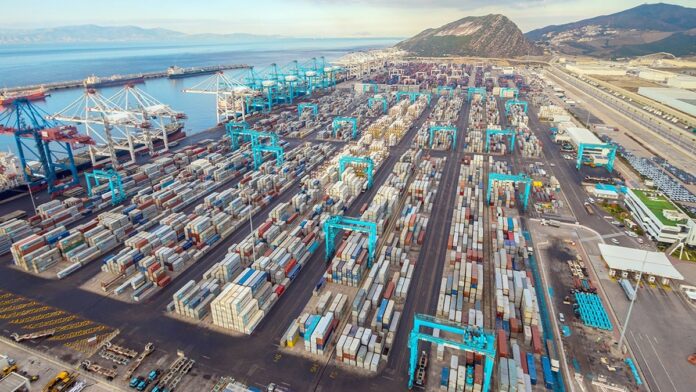At the Africa Financial Industry Summit (AFIS) in Casablanca, Mehdi Tazi Riffi, CEO of Tanger Med, highlighted the essential role that public-private partnerships must play in driving forward Africa’s climate and port infrastructure projects. Speaking to a room of financial leaders, he identified three critical levers for unlocking capital: project quality, robust PPP structures, and streamlined logistics.
According to Tazi Riffi, these pillars provide governments with long-term economic visibility while offering private investors the financial clarity they need—particularly around return on investment and value creation. But beyond building hard infrastructure, he stressed the importance of optimizing systems and processes. For African ports to truly compete on a global scale, he argued, the focus must shift to improving operational performance and regional integration.
On the environmental front, Tazi Riffi reaffirmed Tanger Med’s commitment to full decarbonization by 2030, a transition the port intends to fund entirely on its own. The complex already runs on 100% renewable electricity, and a €200 million investment is currently underway to implement innovative emission-reduction technologies. The strategy reflects the port’s ambition to be a continental benchmark not only in logistics but also in sustainability.
Meanwhile, George Agyekum Donkor, President of the ECOWAS Bank for Investment and Development, emphasized that the funding potential already exists within Africa. He pointed to more than $165 billion in assets currently on the continent—around $40 billion of which come from pension funds—that could be mobilized for climate-related investments.
To unlock these resources, Donkor called for stronger credit enhancement tools to secure long-term investments, a broader adoption of blended finance models, and wider use of green bonds. He also urged policymakers to implement regulatory reforms to remove the institutional barriers that still prevent large-scale funding from reaching sustainable infrastructure projects.
Ahmed Aboubacrine, who leads the Rabat regional office of the Islamic Development Bank, echoed the focus on structure and preparedness. Backed by a AAA credit rating, the IsDB not only raises capital on global markets but also works upstream to develop a pipeline of investment-ready projects. In his view, raising funds is only part of the equation; success depends on having well-structured, immediately actionable projects that can attract investor confidence.
Under the theme “Our Capital, Our Power,” AFIS 2025 brought together more than 1,250 African finance professionals to explore practical solutions for scaling up sustainable investment across the continent. The event underscored a growing consensus: Africa isn’t short on capital—it’s short on mechanisms to channel it efficiently into projects that are both impactful and bankable.
